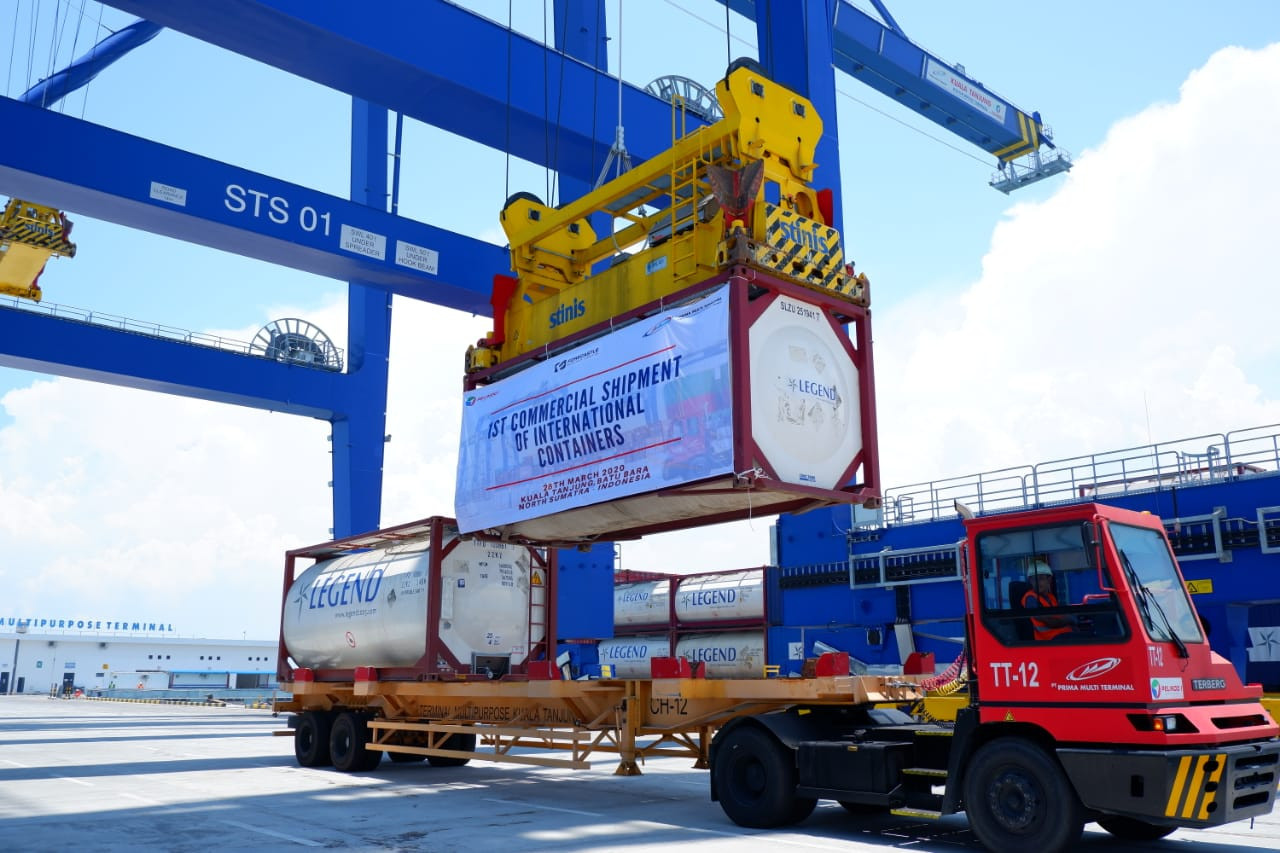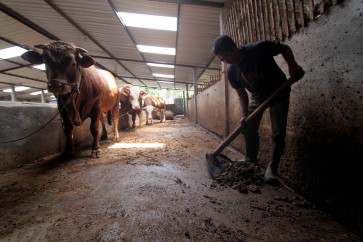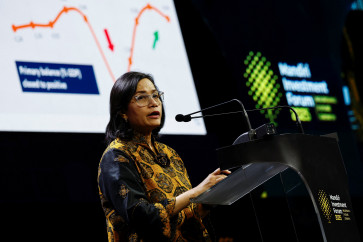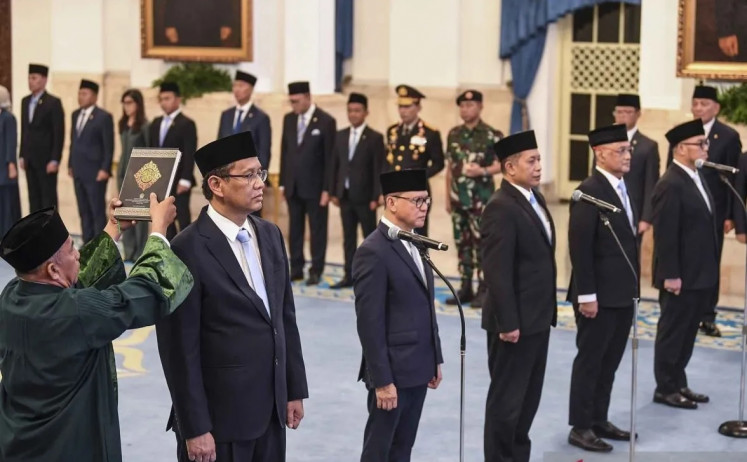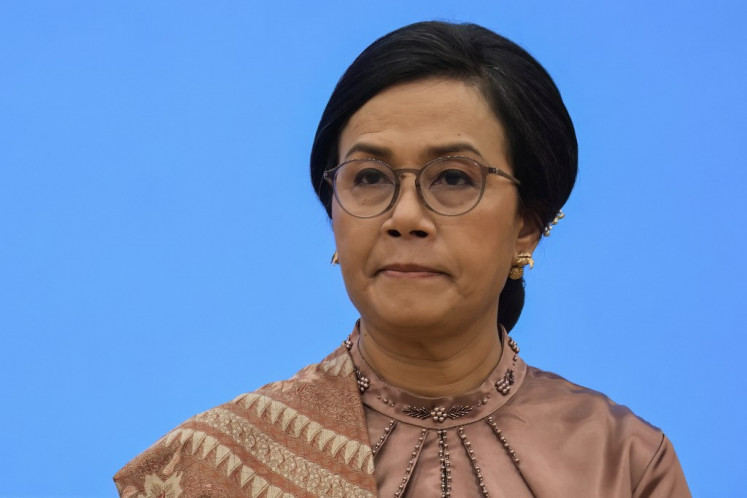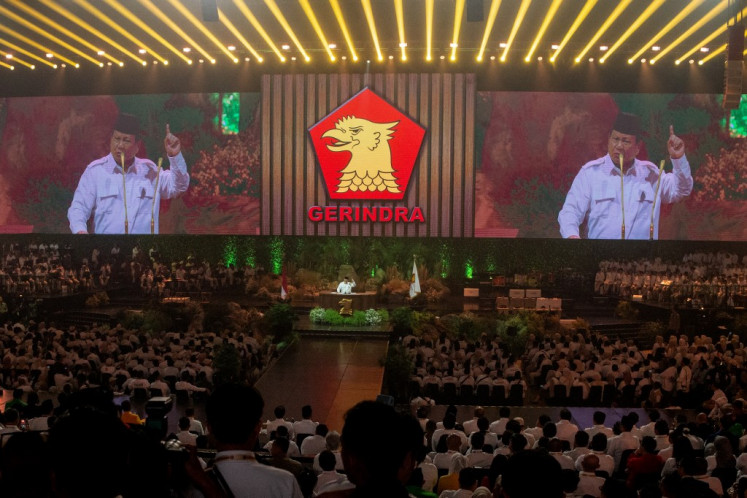Popular Reads
Top Results
Can't find what you're looking for?
View all search resultsPopular Reads
Top Results
Can't find what you're looking for?
View all search resultsRI to boost export to Australia as IA-CEPA enters into force
The Indonesian Textile Association (API) expects the IA-CEPA to raise the value of Indonesia’s annual textile export to Australia by 2 to 7 percent from the level before the trade deal, according to Rizal Tanzil Rakhman, the secretary-general of the association.
Change text size
Gift Premium Articles
to Anyone
T
he Indonesian government and industry players are gearing up to boost export of key products to neighboring Australia, amid slowing trade during the ongoing health crisis, as the trade pact between the two countries took effect on July 5.
The Indonesia-Australia Comprehensive Economic Partnership Agreement (IA-CEPA), which was signed last year and ratified by the House of Representatives in February, eliminates trade tariffs between the countries.
The Trade Ministry expects a boost in the export of some Indonesian products to Australia, such as textiles, automotive products, electronics, fish products and communication tools, as the trade pact is now in effect.
The Indonesian Textile Association (API) expects the IA-CEPA to raise the value of Indonesia’s annual textile export to Australia by 2 to 7 percent from the level before the trade deal, according to Rizal Tanzil Rakhman, the secretary-general of the association.
“We welcome the IA-CEPA and hope it can grow our export to Australia,” Rizal told The Jakarta Post via text message on Monday. “Although its population is relatively small, its income per capita is high and it is a potential market for high-end clothing.”
As global trade was disrupted by the COVID-19 pandemic, Indonesia’s export fell 28.95 percent year-on-year (yoy) to $10.53 billion in May. However, the country's export to Australia still rose 15.69 percent yoy to $920 million in the January-May period, when export to major trade partners was mostly down.
The value of Indonesia’s textile export to Australia was slightly down by 1 percent to $250.9 million in 2019 from a year earlier, according to the API, quoting data from the Australian Bureau of Statistics.
The trade deal was expected to help the post-pandemic economic recovery of both countries, in terms of trade and investment. Bilateral trade between the two countries was worth US$7.8 billion in 2019.
The government also issued three new regulations this year to support the implementation of the deal, including a finance ministerial regulation on customs tariff, the Trade Ministry stated on July 5.
The trade deal is also expected to reduce the input cost of many Indonesian businesses that buy their raw materials or intermediate goods from Australia, such as the food and beverage industry.
Australia imported $2.11 billion worth of Indonesian products, 1.36 percent of the latter’s total non-oil-and-gas exports, throughout 2019.
On the other hand, Australia shipped $4.67 billion worth of commodities to Indonesia, resulting in a trade deficit of $2.56 billion on Indonesia’s side.
Unlike the textile industry, the auto industry may not immediately benefit from the trade deal because it prioritizes trade of electric vehicles (EVs), which Indonesia has not produced, according to Kukuh Kumara, the secretary-general of the Association of Indonesian Automakers (Gaikindo). The Jokowi administration has set a target to start producing EVs in 2021 or 2022.
“We do not have the products with a specification that Australian consumers need,” Kukuh told the Post in a phone interview on Monday.
Indonesian auto industries mostly produce multi-purpose vehicles (MPV) or sedans like the Toyota Camry, while Australians prefer sport utility vehicles (SUV), Kukuh added.
Australian ranchers, among others, also benefit from the trade deal, which guarantees a live male cattle export quota from Australia to Indonesia at 575,000 heads in the first year of the implementation. The quota will grow by 4 percent every year.
The trade deal, therefore, solves the uncertainty issue that Australian ranchers face in planning production since they need two to three years to raise a cattle until it is ready to be slaughtered, according to Valeska, the country manager of Meat & Livestock Australia’s (MLA) Indonesia office.
“An uncertainty, either in the form of regulation or the trade situation, will make it difficult for the ranchers to make a long-term plan,” Valeska said in a virtual discussion on Monday.
Australia was Indonesia’s largest source of beef import. The value of Indonesia’s beef import from the country grew 12.5 percent to $362.2 million in 2019 from 2018.
Institute for Development of Economics and Finance (Indef) economist Bhima Yudhistira warned that with Indonesia's past trade pacts, such as the ASEAN-Australia-New Zealand Free Trade Area (AANZFTA), only around 35 percent of the country’s business players had utilized it to boost their exports.
“Has the information been disseminated well? Do small and medium businesses get a chance to export [their products] to Australia?” he told the Post on Tuesday.
Bhima said there was also a chance that the trade deal would widen the trade deficit, as Australia seemed to be more ready to export to Indonesia.
“Indonesian products that are exported to Australia are still fragmented, unfocused,” he said. “Australia is focused, in livestock and agriculture. I fear that the trade deficit will increase after the IA-CEPA.”

